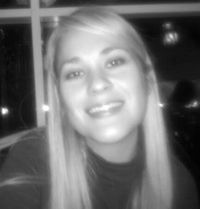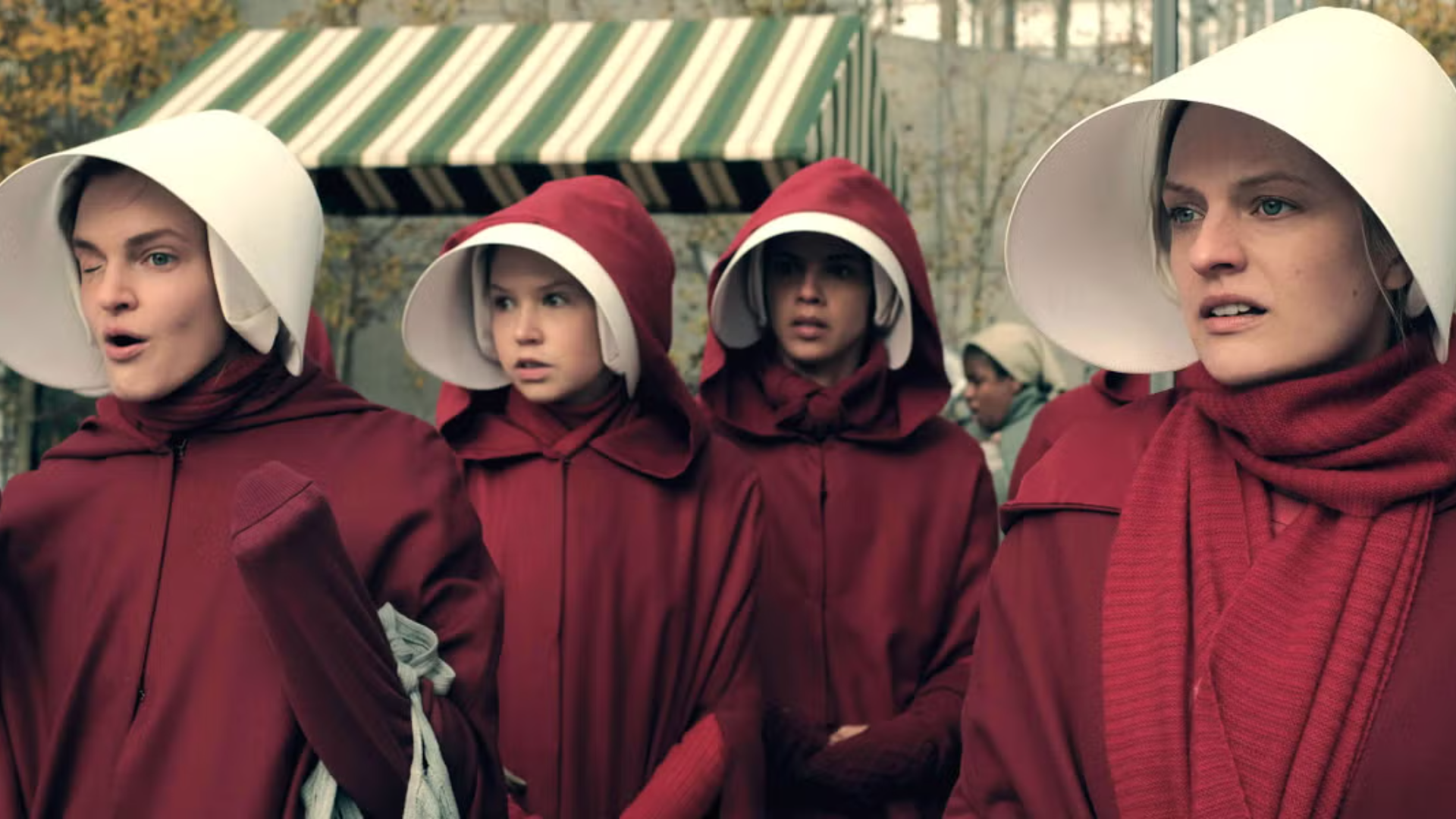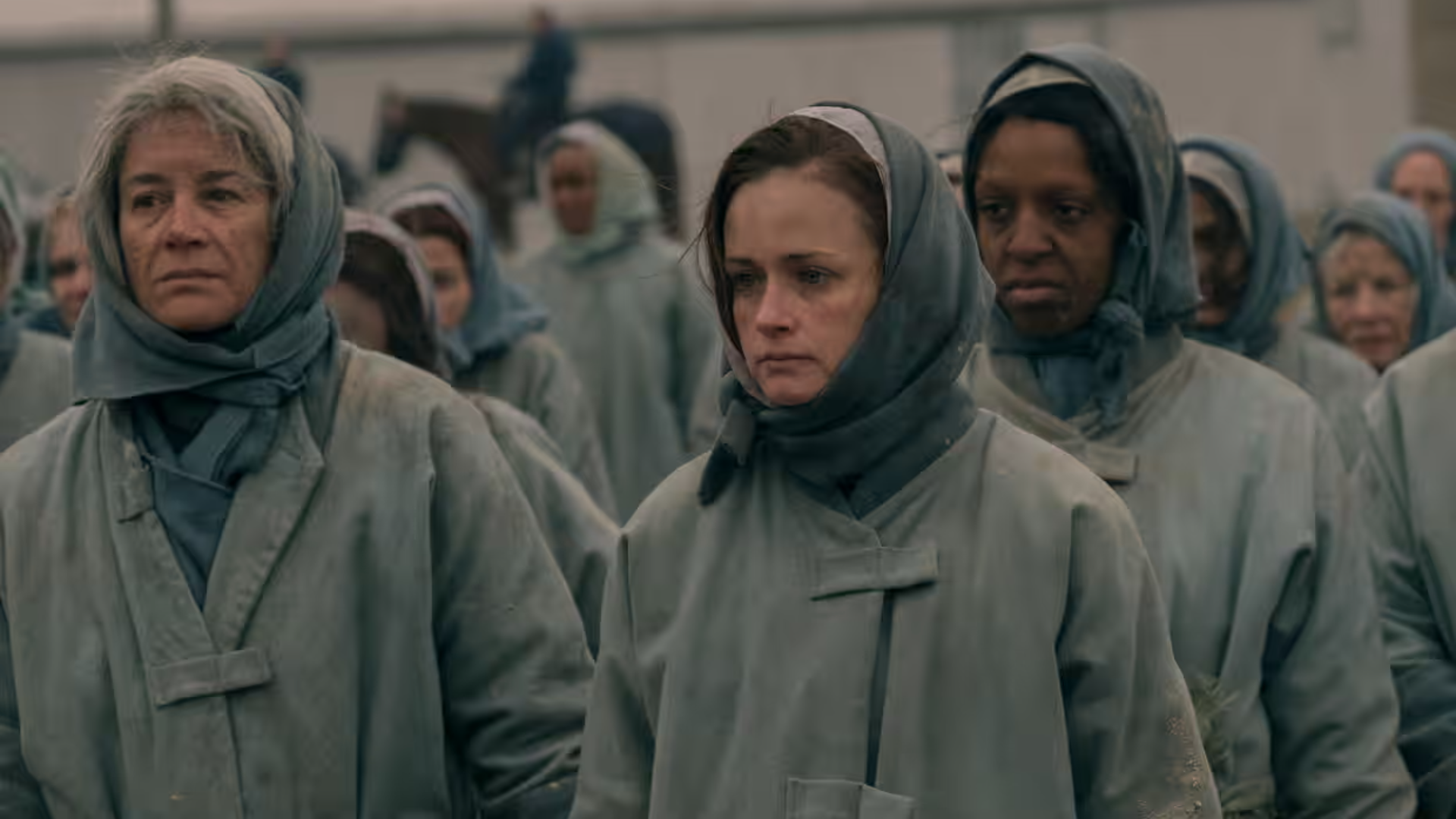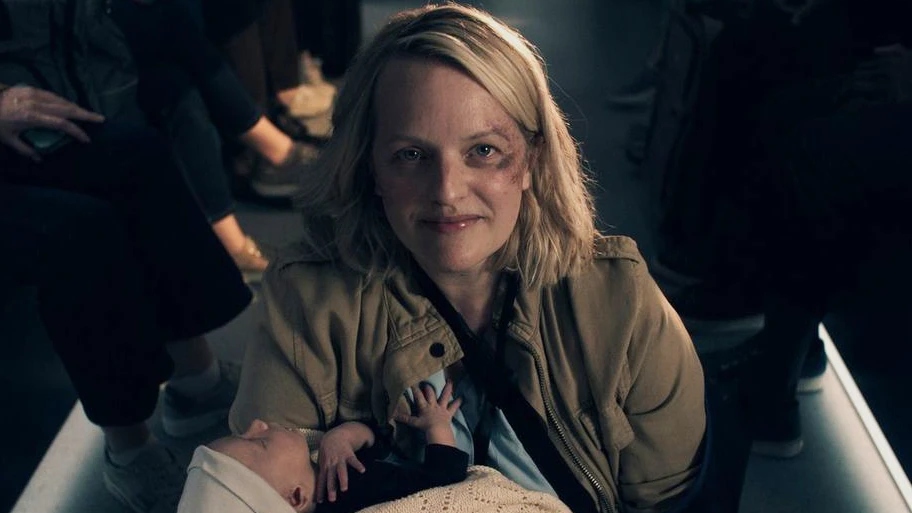What do all the sayings mean in The Handmaid's Tale? Breaking down the language of Gilead
The folks of Gilead speak a little differently, and if you wonder what 'under his eye' and 'blessed be the fruit' really mean, you've come to the right place


Blessed be the fruit, The Handmaid's Tale is back for season 6! But it has to be said, the hit dystopian show has a lot of loose ends to tie up before it comes to a close - unless it's leaving some of them for its spin-off, The Testaments.
We've been pondering whether June will actually get Hannah back or not, and if she'll ditch trusty Luke and end up with Nick. Like many, we also want to know what happened to Emily after her character took off to fight for the resistance and has barely been spoken about since.
Ahead of season 6, there have also been lots of questions about just what all of the sayings thrown around by the residents of Gilead mean. We've put together a handy guide to all of them, so you can impress your friends with knowledge of the Gilead lingo.
What do the sayings in The Handmaid's Tale mean?
Angels
An Angel is a male social class, second only to Commanders. Angels are soldiers serving on the front lines, not to be confused with Guardians, who aren't trained soldiers but used more for routine policing and other menial tasks.
Blessed be the fruit
This is one of the only phrases Handmaids are allowed to use within their limited repertoire and conversations with one another, and also the standard Gilead greeting meaning 'hello.'.
With Biblical ties, the phrase is generally met with the response, 'May the Lord open,' and is to encourage fertility. Handmaids who have given birth are referred to a 'fruitful,' and therefore the phrase offers hope that Gilead women will be 'blessed' with the 'fruit' of a baby.
The Colonies
The Colonies are like the Gilead version of prison. They're former war zones heavily contaminated with pollution and radioactive waste, and prisoners sent there undertake the hard labour of moving the waste with no masks or protective clothing.
Sign up to our free daily email for the latest royal and entertainment news, interesting opinion, expert advice on styling and beauty trends, and no-nonsense guides to the health and wellness questions you want answered.
Most of the prisoners are women, with only a handful of men. Handmaids unable to get pregnant will be sent there, along with women who have committed a number of other crimes and deemed to be an 'unwoman' by the Gilead justice system.
Being sent to the Colonies is a death sentence, and women often die from radiation poisoning after working on the toxic land.
Commanders
A shortened version of 'Commanders of the Faithful,' Commanders are exclusively male, and the highest-ranking members of Gileadean society. They can be identified by the gold star worn on their suits.
Commanders serve as politicians, military leaders, and lawmakers. Field Commanders engage in military leadership role,s and High Commanders are the highest ranking of all Commanders.

Eyes
Short for The Eyes of God, Eyes are a form of Gilead secret police, a little like the Secret Service. Acting as intelligence for the regime, they spy on citizens, patrol borders, and track down any opponents.
They use phone hacking, torture, or any means they choose to get the information they need, and they played a large part in overthrowing the original US government. The covert organisation is mainly formed of well-trained former members of the CIA, although some Marthas work for them to spy on certain households.
Guardians
A shortened version of Guardians of the Faith, Guardians are both a rank and organisation in Gilead that act as its uniformed security force and military.
Predominantly responsible for maintaining public order, they also serve as the personal soldiers, bodyguards, and servants of Commanders. They rank below Angels, but still have some privileges over ordinary men.
Handmaid
Handmaids are a group of fertile women forced into childbearing servitude for the elite families of Gilead. Before being captured by the regime, they would've been women who'd commit so-called transgressions, such as adultery or having children out of wedlock.
They are stripped of any rights, and if they bear a child for a Commander and his Wife, they will move to another household, or 'posting', when the baby is weaned, in the hope they'll provide a baby for the next family.
They aren't even allowed to use their own names, and are instead known by the names of their Commander. For example, when June is known as Offred, this means 'of Fred,' or that she's owned by Fred.
Jezebels
Jezebels is both the name of a Gilead brothel and the name of the women who work there. These secret sex clubs are frequented by the male Gilead elite and visiting diplomats.
The women sent to work there have usually been caught committing something Gilead perceives as a crime, and are given the choice between working there or being sent to The Colonies.

Marthas
Marthas are a fairly low social class of women in Gilead, who serve as domestic servants to the families of the Commanders. They generally serve as cooks and housekeepers, undertaking menial tasks such as cleaning, shopping, alongside cooking.
Most Marthas would be infertile or unmarried women from previously low-ranking households before the Gilead regime took over, although when baby Angela becomes unwell in season 2 and doctors struggle to help her, a Martha who used to be a paediatric doctor is called upon for her expertise.
Mayday
Mayday is a secret resistance group working to oppose and bring down Gilead from the inside. Member numbers are unknown, and anyone can join.
Members identify each other by speaking the code word 'Mayday' in conversation, and those working for the group gain information from important members of Gileadean society, and help prisoners of the regime escape to safety.
May the Lord open
This is the standard response to the Gilead greeting of 'Blessed be the fruit.' It refers to the hope that God will open up a Handmaid's womb to a new soul and she'll become pregnant.
Praise be
This is the standard response to good news in Gilead, and is a shortened version of the Biblical phrase, 'Praise be to Thee/God.'
Also joining the limited number of small-talk phrases Handmaids are allowed to use, it's a response to good news such as a pregnancy announcement.

Sons of Jacob
The Sons of Jacob are the group that devised the philosophy and social structure of Gilead and were the ones to overthrow the American government and take control of the country.
Their aim is a full return to traditional Christian values and adherence to a very literal interpretation of the Bible, particularly the Old Testament. They believe the biological destiny of women is to marry young and reproduce.
They hold the idea that the fertility crisis and climate change are punishments for the sins of mankind, especially women. This is why they are completely against any reproductive rights for women, restricting them to the home to perform traditional gender roles.
Under His Eye
This is both a way to say goodbye to another person and a warning. It refers to an ever-present God who is always watching the residents of Gilead, letting them know that, as well as being observed by an omnipresent God, they are being watched by human forces, such as the Eyes.
Essentially, it's a verbal way of controlling Handmaids and other members of Gilead's dystopian hierarchy. It serves as a constant reminder that they're always being watched, whether by spiritual or human form, which would discourage them from rebelling or attempting to escape.
Unwoman
An Unwoman is the lowest social class of women in Gilead. This social class is made up of women who have committed a perceived transgression, such as being unmarried, divorced, an adulterer, or not heterosexual.
Unwomen would also have been involved in something opposing Gilead's laws, such as being a human rights activist or feminist. Handmaids who fail to conceive during their posting are also branded Unwomen, and generally sent to the Colonies as punishment.
Wives
The highest rank of women in Gilead, wives are married to Gilead’s Commanders. Despite their high rank, they still live a life of oppression and are forbidden to read and write, and must obey their husbands.
Daughters of Commanders and their Wives will attend Wife school, where they'll be trained in what will be expected of them once they're married off to a Commander themselves.

Lucy is a multi-award nominated writer and blogger with seven years’ experience writing about entertainment, parenting and family life. Lucy worked as a freelance writer and journalist at the likes of PS and moms.com, before joining GoodtoKnow as an entertainment writer, and then as news editor. The pull to return to the world of television was strong, and she was delighted to take a position at woman&home to once again watch the best shows out there, and tell you why you should watch them too.